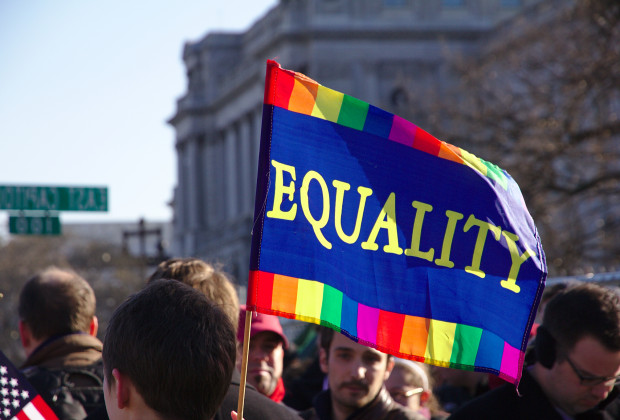By Myrto Katsouli,
Human diversity is and has always been one of the most important and interesting issues of our society’s headquarters. That is because, being similar to every possible extent, i.e. our appearance, our preferences, or the choices we make, would not only be boring and monotonous, but also useless for the general social function. Each member of our society is an indispensable, yet different piece, that completes the bigger picture — one way or another. The fundamentals of our world, both at a national and an international level, are established in a way that, ideally speaking, each diversity is properly used to achieve maximum general happiness, stability, and prosperity.
Diversity (no further explanation needed at the moment) is not only necessary to form a well-balanced and many-sided society, but it is also a form of power for many people. Being different together and, therefore, forming groups to fight about such deviation from the “norm” can give those who feel excluded from the social participation a beam of hope and purpose. However, is it still possible to determine how this differentiation is expressed in modern society? Or is it more of a social and moral fabrication to help people fulfill the need to belong?
That is because we tend to create different categories of each differentiation and we, therefore, end up being intentionally different in order to “go with the flow” and to follow each new social tendency; the “it girl” for women, the “hipster” and “the feminist” for men, the “vegan-non-conforming-environment-and-animal-friendly chic”, “the very-manly-traditional-heavy” behavior that applies to a large group of men or many other typical and stereotypical ways of expression.

And, of course, being a part of a group as such is not at all blameworthy. On the contrary, it can be very helpful for many people to identify as they want and desire, in order to represent a tendency that is not yet accepted or approved by the general social norm. My personal concern is the reason behind this internal need for some people to feel recognized and applauded for being different and excelling at achieving the most differentiated diversity.
Let us think about the general feminine habit to get nicely dressed, to wear fancy makeup or feel beautiful and womanly, by proceeding into some acts, generally considered as “feminine”. This describes perfectly how modern beauty standards are fixed and how women are expected to behave and present themselves to the opposite sex. A tendency to deviate from these typical stereotypes is very common, and many women, younger or older, present themselves as not being like the “other women”, who perform those habits. They do not want to be sexualized or lusted by the fact they are and feel beautiful and thus, they tend to totally deny this aspect of themselves.
There are more extreme examples to describe this psychological necessity to deviate from any generally accepted form, especially if we consider the over-the-top “gayness” —and not only— of the LGBTQIAP+ community. The general harassment and despise they may have received in the past has made them want to “claim” their rights and advocate for those who feel excluded in a controversial way. They might think that their different sexual preferences are abnormal, so they revendicate equal social treatment by presenting that they lack normality. That not being the case, they intentionally and provocatively try to stand out from the crowd, which results in the opposite outcome, and, therefore, the vicious cycle continues.

In any case, it is difficult to arbitrarily determine what is normal or not in our modern society. We are walking on a very thin line when we talk about the general feminine or masculine, which are the two “socially acceptable” behaviors with nothing in-between, habits that have always differentiated the two socially-acceptable sexes. Besides, any external behavior is happening to receive good criticism, to feel accepted and liked by our social surroundings, and to make a memorable impression on our “sexual” targets, no matter how objectifying this may sound.
On the one hand, women will always find ways to feel beautiful and feminine, following the general standards or not, and, on the other hand, men will always try to impress women by being their best choice, competing for their place in the relationship game. And we can definitely not feel appalled by our true and biological nature, because we will end up deranging our society to an extent that we will forget our own human existence and fundamental function.
In conclusion, being different is not a special characteristic of a certain amount of people, however, it is natural and rather normal. Nobody is the same in society and each sex presents typical, atypical, similar, and diverse tendencies. There is no shame to admit, for both men and women, that, that if we genuinely want to move on from the general stereotypical tendencies that degrade humanity as a whole, we need to stop the hostilities and find ways to be complementary to each other. Grouping and oppressed grouping is not a constructive method to fight the imposed social standards, because rather than promoting the team spirit and effort, we end up diastancing ourselves from each other even more. This is why we need to build up trust, firstly on ourselves, and feel confident that who we are in this world is a unique situation and we do not have to alter or distort the already existing reality, but to adhere to the social standards in order to foresee a more promising future of social justice, equivalency, and unity.
References
- I’m not like others”: Stigma navigation by people who inject drugs in Vietnam, in Drugs: Education, Prevention and Policy, vol. 29, 2022
- I’m Not Like Other Girls, newyorker.com, Available here
- How to Stop Comparing Yourself to Others, ramseysolutions.com, Available here
- The age of envy: How to be happy when everyone else’s life looks perfect, theguardian.com, Available here
- «Εγώ δεν είμαι σαν τους άλλους», pillowfights.gr, Available here




